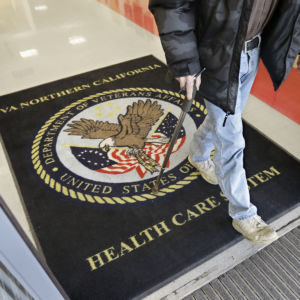Having served in combat in Vietnam and as secretary of veterans affairs under President George W. Bush, it has been my life’s honor to advocate and provide support for those men and women who answered the call of duty to serve this great nation. While I understand the plight of many Americans struggling with high out-of-pocket healthcare costs and the need to reduce prescription medication prices, legislation such as H.R. 3 could put the lives of countless veterans in jeopardy by imposing significant changes to the healthcare industry and threatening future medical innovation.
Many of our nation’s veterans are living with injuries or chronic conditions that require undisrupted access to prescription medication as well as other treatments and therapy. Additionally, following their tours of duty, some veterans may develop toxic exposure-related illnesses, such as certain lung or blood cancers, or post-traumatic stress disorders. For many of these conditions, there is a great unmet medical need for new and innovative therapies. In my time at the VA, I witnessed how wholesale changes to our healthcare system can undermine already working programs and substantially impact the long-term sustainability of the industries that work to keep our veterans healthy.
I strongly urge lawmakers to reject H.R. 3 and keep the biopharmaceutical R&D ecosystem secure in order to ensure the treatments veterans rely on today, as well as those they hope for tomorrow, are available to them. This includes rejecting policies that would disincentivize research and development in “risky” therapeutic areas. In particular, this development is critical for those sickest veterans struggling with rare, toxic exposure-related cancers–as well as other serious chronic illnesses such as Alzheimer’s for which there are no treatments currently on the market.
You do not have to look further than European countries that utilize price controls in their healthcare systems to see the negative impact these policies have on biopharmaceutical innovation. Price setting policies in foreign countries suppress worldwide research and development investments. Additionally, while nearly 90 percent of new medicines launched from 2011 to 2018 are available in the U.S., just 59 percent are available in the U.K. and 50 percent in France.
Additionally, those individuals are often subjected to restricted access to essential medication and longer waits for treatments that are often the difference between life and death. For example, pertaining to cancer drugs that are available in these reference countries, there is, on average, an 18-month lag between the time they are available in the U.S. and when they are available abroad. In addition, medication is often rationed, and providers cannot personalize patients’ treatment plans because only certain drugs and therapies are available. Our nation’s seniors and veterans should get the best care, based on what their provider deems necessary – not the government.
If we’ve learned anything over the past year, it’s that the innovative engine of our biopharmaceutical industry, if given the resources, can accomplish truly magnificent scientific work and combat the world’s deadliest diseases in record time. Veterans in America deserve the best care our country can provide, and foreign reference pricing will not only undercut access to the quality care they deserve but also diminish hope for new, innovative treatments for some of the most devastating diseases facing veterans today.

